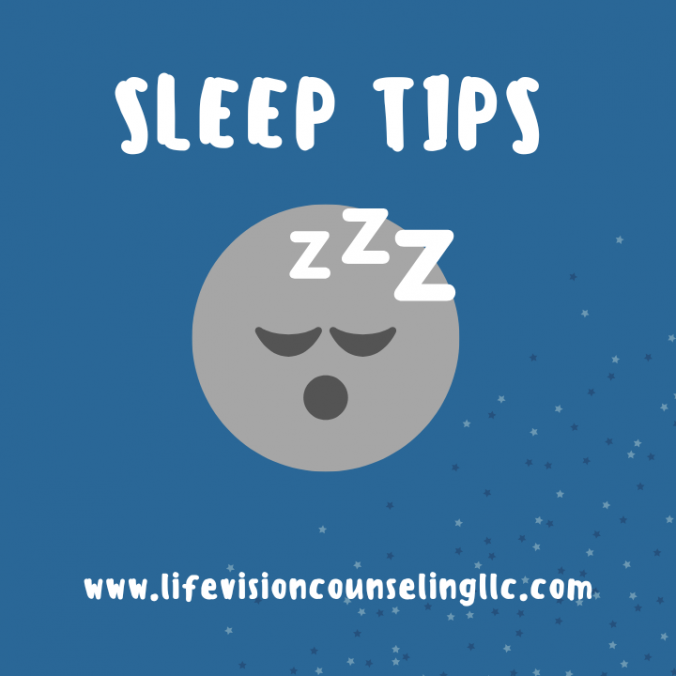Tips for Better and More Consistent Sleep
Most people aren’t getting enough sleep to function optimally. Sleep often takes a backseat to busy schedules, late-night scrolling, or even just one more episode of your favorite show. But quality sleep isn’t just about feeling rested—it’s essential for mental clarity, emotional balance, and physical health.
If you’re struggling with inconsistent or poor-quality sleep, don’t worry. You’re not alone, and there are plenty of practical strategies you can try. Here are some proven tips to help you sleep better and more consistently, so you can wake up ready to tackle the day.
1. Stick to a Sleep Schedule
Your body has an internal clock, also known as the circadian rhythm, that thrives on routine. Going to bed and waking up at the same time every day—even on weekends—helps regulate your sleep cycle. Over time, this consistency makes falling asleep and waking up easier.
2. Create a Sleep-Friendly Environment
Your bedroom should be a sanctuary for sleep. Here’s how to optimize it:
Keep it cool: A room temperature of 60–67°F (15–20°C) is ideal for most people.
Eliminate light: Did you know that for ideal sleep, it should be dark enough that you are not able to see your hand when your arm is extended? Use blackout curtains or a sleep mask to block light, which can disrupt your melatonin production.
Minimize noise: Consider white noise machines, fans, or earplugs if your environment is noisy. If you’re waking up due to noise during sleep, your 90-minute sleep cycles are disrupted and you’re not getting optimal benefits.
Invest in comfort: A supportive mattress and cozy bedding can make a world of difference.
Reserve the bed for sleeping: Doing tasks like working and studying in bed can make sleeping more difficult. By reserving the bed for sleeping, can condition you to view getting in bed as a prompt and cue for sleep.
Keep organized and clean: Keeping a clutter free room helps reduce task and project-oriented thoughts. Washing sheets once a week promotes health and good sleep.
3. Limit Screen Time Before Bed
The blue light emitted by phones, tablets, and computers can interfere with melatonin, the hormone that signals your body it’s time to sleep. Try to avoid screens at least an hour before bed. If you must use devices, consider wearing blue-light-blocking glasses or enabling night mode.
4. Establish a Relaxing Bedtime Routine
A calming pre-sleep ritual signals your brain that it’s time to wind down. Consider activities like:
Reading a book
Taking a warm bath or shower
Practicing deep breathing, meditation, or gentle stretches
Journaling to clear your mind of worries
5. Be Mindful of What You Consume
What you eat and drink can significantly impact your sleep:
Avoid caffeine: Steer clear of coffee, tea, and energy drinks in the afternoon and evening.
Limit alcohol: While alcohol may make you feel drowsy, it disrupts your sleep cycle, especially REM sleep.
Avoid heavy meals: Eating a large meal close to bedtime can make it harder to fall asleep.
6. Get Natural Light During the Day
Exposure to natural sunlight, especially in the morning, helps regulate your circadian rhythm. Spend time outside or sit by a window early in the day to reinforce your body’s natural sleep-wake cycle. If you’re not able to get outside, a specialty light might help.
7. Stay Active During the Day
Regular physical activity can improve sleep quality. Even light exercise, like walking, can make a difference. Just avoid vigorous workouts close to bedtime, as they may energize you and delay sleep.
8. Limit Naps
While napping can be refreshing, long or late-afternoon naps may interfere with your ability to fall asleep at night. If you need to nap, aim for 20–30 minutes earlier in the day.
9. Manage Stress and Anxiety
Stress is a major sleep disruptor. Incorporating stress-management techniques into your daily routine can help:
Practice mindfulness meditation or yoga.
Write down your thoughts in a journal to offload worries before bed.
Seek support from a counselor or therapist if stress feels overwhelming.
10. Know When to See a Doctor
Sleep disorder counseling, like Cognitive Behavioral Therapy for Insomnia, is considered the first line treatment for most sleep issues and medications for sleep are thought of as a second step. However, if you are experiencing sleep apnea, restless legs syndrome, or specific insomnia, you should should see a doctor for specialized treatment.
Building Your Sleep Habits
Improving your sleep is a journey, not an overnight fix. Start by adopting one or two of these tips and gradually incorporate more as you feel comfortable. Over time, these small changes can lead to big improvements in your overall sleep quality and consistency.
Remember, good sleep isn’t a luxury—it’s a necessity. By prioritizing rest, you’re investing in your physical health, mental clarity, and emotional well-being. Sweet dreams!
If you think your sleep may be negatively affecting your life or your mental health, let’s dive in!

